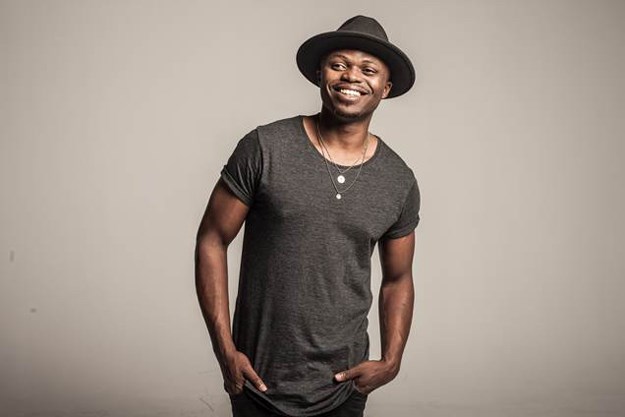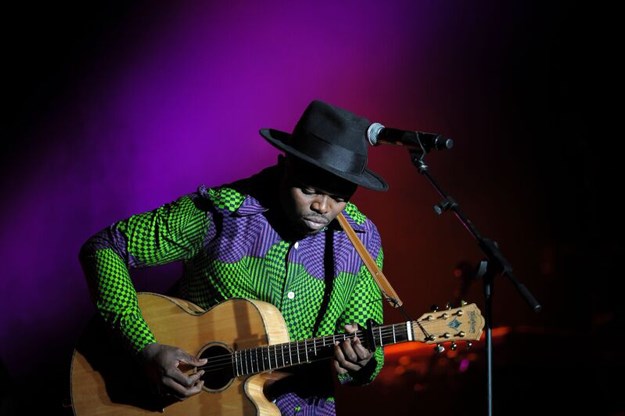
Top stories






More news

Marketing & Media
Warner Bros. was “nice to have” but not at any price, says Netflix

Logistics & Transport
Maersk reroutes sailings around Africa amid Red Sea constraints
















As you will soon discover, Tresor’s resilience and determination has taken him to great heights. Tresor has worked with a range of artists, including producing music with Khuli Chana, Beatenberg and The Kiffness and opening for Seal during his SA tour earlier this year.

I started making music when I was eight, during the Rwandan genocide. Our parents used to take us to church to keep us away from the madness. I played the drums and music was an escape for me. I then started to teach myself to play the guitar from age 15. From since I was a young boy until now, my passion for music has never really stopped.
Life is a self-discovery journey: you learn as you go. Where I come from, there are a lot of people still trying to break through in life. I made it my task to break the cycle, to be a young guy from the middle of nowhere in a small town in Africa to make my mark for myself, my city and for Africa. I also aim to influence children from war-torn countries.
Working as a car guard was the most humbling experience of my life thus far. It taught me to treasure everyone around me, to be respectful and that it doesn’t matter where you start. Although the transition was hard, and a lot of people didn’t see the bigger picture (I had colleagues and even my own family didn’t understand how I didn’t get tertiary education, they didn’t understand the magnitude of my dream to be a musician), but deep inside, I’ve always known that I wanted to use my music to cross over globally. I’m grateful for the whole transition.
I think what’s important to me is to remain true to myself and stay grounded. That’s why I still hang out with my friends – some of whom are still car guards in Durban. We drink and laugh and talk life. You must keep your people close whether things are going well for you or not.
Everyday life pretty much. I’m influenced by people I spend time with and things like pain, tears, confusion, joy and happiness. Sometimes I write about the stories people have told me. I’m just a guy who shares everyday emotions through music. I’m a capturer of emotion.
Collaboration is never about value in terms of exposure, but more about bringing two worlds together.
My collaborations are about creativity. We’re living in a time where African music is getting in the limelight globally. My quest is personally to take African music to all corners of the globe in a way that’s never been done before. The only way we can do this is through authentic and different African pop music. It’s about creating something new to leave to a generation.
I’d rather collaborate with an older artist like Hugh Masekela, because there’s a musical heritage there. I’d also like to collaborate with Ladysmith Black Mambazo, Rihaanna and Coldplay - my biggest songwriting influencer.
It’s about the music: it’s African, but able to be played all over the world. It was flattering to be noticed by Italy, because the Italians’ taste in food, fashion and music is really good. I’m grateful that we get to be at the forefront of the new African pop culture, taking this music to the world.
The best advice for me is that a life lived outside your passion is a waste. I decided when I was young that I wanted to be an artist despite whether it made me rich or not. If you find your purpose - something that really sparks a fire in your heart - then go for it. It could be choreography, music, teaching, journalism or gardening. And, it’s never too late to start over again.
I’m very passionate about kids and children’s rights and women’s rights. I feel investing in youth is crucial, because these are our future leaders. We need to help mould them into amazing young men and women, so this is just me playing a role in one of Tata Madiba’s dreams to build a hospital for kids. I’m happy to be contributing to it through my music.

My focus for the next two years is to break globally. I’m definitely going to go back to Italy for a promo tour and a few shows.
Tresor recently struck a worldwide deal with Ultra Records and backing from Vth Season and Sony Music Entertainment Africa (RCA Records), which will enable him to make more global releases.
Tresor released ‘VII’ (Repack) in September. The album consists of a live recording of Tresor on tour with Seal as well as a new version of ‘Beat The Dust’ featuring Kenyan artists, Sauti Sol and can be purchased here.
Find out more about Tresor via the links below: